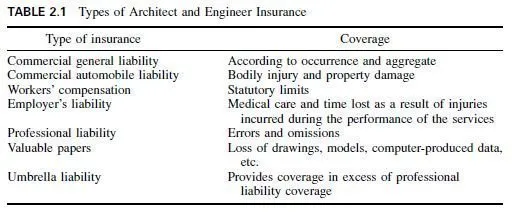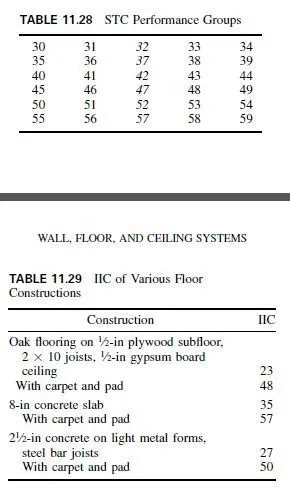Who Pays for the Unexpected?
A well-drafted construction contract between contractor and owner should always contain a changed-conditions clause in its general conditions. (See General Conditions of the Contract for Construction, AIA A201, Art. 4.3.4, Claims for Concealed and Unknown Condition, American Institute of Architects, 1735 New York Ave., NW, Washington, DC 20006.) This clause should answer the question:
If a contractor encounters subsurface conditions different from what might normally be expected or from what is described in plans, specifications, or other job information provided by the owner or owners agents, resulting in increased cost, should the contractor absorb the increased cost or should the owner pay it?
A properly drafted change-conditions clause should contain the following elements:
A requirement that the owner pay for the unexpected.
Arrangements so that the owner will not be the arbiter of whether the unexpected has occurred.
Recognition that the contract documents have been based on an assumed, described set of facts.
Indication that a changed condition can exist because of unanticipated difficulty of performance.
A requirement that the owner be made aware of a changed condition when it occurs.
Indication that changed conditions can include obstructions.
A requirement that the contractor stop work in the area of a changed condition until ordered to proceed.
Indication that either party can claim changed conditions.
Recognition that the method of procedure for handling changed conditions is provided for in the contract.
An arbitration clause or effective means of appeal other than to the courts.
A contractor would be well advised not to enter into agreement for construction without a changed-conditions clause.
Alternative Dispute Resolution
Alternative dispute resolution is the term applied to methods of resolving disputes other than litigation. The American Arbitration Association. a nonprofit organization and pioneer in alternative dispute resolution, has established and is a financial supporter of the National Construction Industry Disputes Resolution Committee.
This group comprises representatives of all the major organizations concerned with construction.
Assistance in Negotiation. When a dispute between owner and contractor arises on a construction project, the foremost method of resolving it is by immediate negotiation. One optional procedure for facilitating negotiation is to appoint before the start of a project a Dispute Resolution Board (DRB). It usually consists of three qualified persons whose role is to assist the parties in negotiating a settlement of a controversy or claim. If there cannot be a resolution of the dispute by such negotiation, then the DRB will issue nonbinding recommendations based on available information.
Besides negotiation, other methods used for dispute resolution include conciliation, facilitation fact-finding, minitrials, and most importantly, arbitration and mediation.
Arbitration. Parties to a contract, either at the time of entering into the contract or when a dispute arises, agree to submit the facts of the dispute to impartial third parties who will hear a presentation of the claims by both parties and render a decision.
If the parties have agreed to submit a matter to arbitration, the decision of the arbitrators is binding on both parties. The decision can be enforced in any court of law having jurisdiction over the party against whom a claim is made.
Because of the large number of construction arbitration cases filed, the American Arbitration Association has, in conjunction with representatives from the construction industry, drafted special construction-industry arbitration rules (Construction Industry Dispute Resolution Procedures. American Arbitration Association, 335 Madison Ave. (10th Floor), New York, NY 10017-4605). These rules provide information for proceeding with construction arbitration.
Parties may agree beforehand to submit disputes to arbitration by inclusion of the standard arbitration clause in their agreement:
Any controversy or claim arising out of or relating to this contract, or the breach thereof, shall be settled by arbitration in accordance with the Construction Industry Arbitration Rules of the American Arbitration Association, and judgment upon the award rendered by the Arbitrator(s) may be entered in any Court having jurisdiction thereof.
To the standard arbitration clause, it is sometimes best to add the words in the city of immediately after shall be settled by arbitration, to specify where the arbitration hearings should be held.
Mediation. In addition to arbitration, there is available through the services offered by the American Arbitration Association a system of mediation of disputes.
Mediation differs from arbitration in that not only is it entered into voluntarily by the parties, but the results are nonbinding, as opposed to arbitration where the results are binding on both parties. When a dispute is submitted to mediation, a trained mediator, or several mediators, will assist the parties in reaching a settlement of the controversy.
The mediator participates impartially in the negotiations and advises and consults the various parties involved. The result of the mediation should be an agreement that the parties find acceptable. The mediator cannot impose a settlement and can only seek to guide the parties to a settlement.
The American Arbitration Association administers the mediation process by providing panels of trained and acceptable mediators. In addition, it will provide a place to hold the mediation hearings and will maintain records of cases and issues involved, the names and types of mediators appointed, and the results of the mediation efforts.
When drawing up a contract, the parties to the contract may, by mutual agreement, wish to insert into the contract the following mediation clause:
If a dispute arises out of or relating to this contract, or the breach thereof, and if said dispute cannot be settled through direct discussions, the parties may agree to endeavor first to settle the dispute in an amicable manner by mediation under the Voluntary Construction Mediation Rules of the American Arbitration Association, before having recourse to arbitration or a judicial forum.

